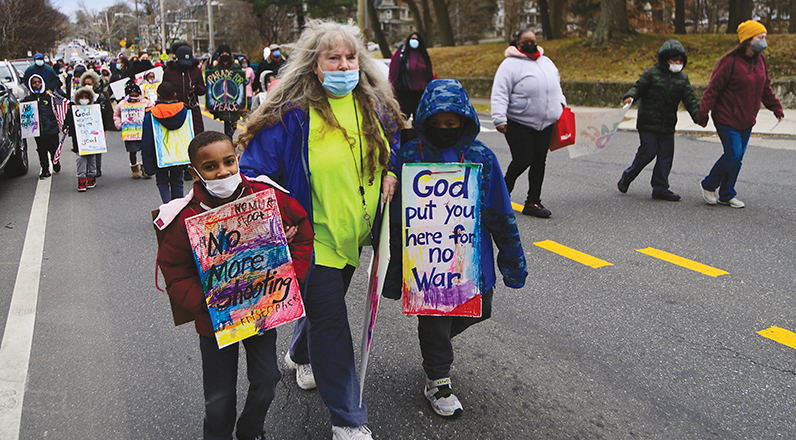
During pediatric patient visits, clinicians at some Trinity Health Mid-Atlantic facilities are advising parents to inquire about unsecured firearms before their children go to visit a friend or relative.
The office visit discussions are part of a broader campaign that Trinity Health Mid-Atlantic began at the start of this year called "Doesn't Kill to Ask." Through those conversations, plus public service announcements, news releases, social media posts, newsletters and other means, the region and its facilities hope to normalize discussions about gun safety so that parents can feel comfortable asking about firearms when their kids are visiting friends and family.

"Up until now there's been a stigma attached to people asking about" guns in other people's homes, says James Woodward, president and CEO of Trinity Health Mid-Atlantic. "But we're showing how people can raise the question in a nonpolitical, nonjudgmental way."
He adds that gun violence "is a public health crisis, and the data shows that gun violence is a leading cause of death in kids. Our hope is that this campaign will spread. If we can save even just one child, it will be well worth it."
Interwoven issues
The Doesn't Kill to Ask campaign is from Hospitals United, a collaboration of nearly 200 health systems and hospitals across
the U.S., including Trinity Health and others in the ministry. Trinity Health Mid-Atlantic signed on to the firearm awareness campaign because it is in a region with a high rate of gun violence.
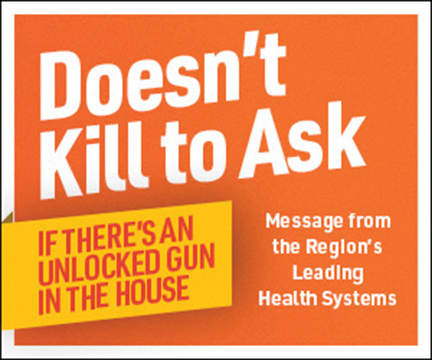
Trinity Health Mid-Atlantic includes four hospitals and their affiliated networks: Mercy Fitzgerald Hospital in Darby, Pennsylvania; Nazareth Hospital in Philadelphia; Saint Francis Hospital in Wilmington, Delaware; and St. Mary Medical Center in Langhorne, Pennsylvania. The facilities serve a region that spans parts of Delaware, Pennsylvania and New Jersey.
St. Mary, which is leading the system's Doesn't Kill to Ask campaign, is one of the few Level II trauma centers in a service area that includes parts of Philadelphia. That city, and others in Trinity Health Mid-Atlantic's catchment area, have seen rising rates of gun deaths in recent years. The city of Philadelphia reported 2,263 shooting victims last year, of which 217 were younger than 18. That compares with 1,294 shooting victims in 2015; 81 of them were younger than 18.
"Philadelphia is infamous for gun violence now, and we're seeing that many of the victims are children of color — innocent victims," says Woodward. He notes that community health needs assessments that Trinity Health Mid-Atlantic hospitals and other facilities in the region have produced consistently show alarming rates of mental health concerns, substance abuse and gun violence. He says these are interwoven issues that have proven intractable.

Dr. Quoc Thai Vu, a general surgeon who practices at St. Mary's trauma center, says he and his fellow clinicians see the fallout as they tend to gunshot victims of all ages. He says many firearm tragedies are "highly preventable," particularly when it comes to children. "Often, if the adults in the household had safely secured their firearms, then the kids would not have acquired and used them," Vu says.
Guard down
When it signed on to the Doesn't Kill to Ask campaign, Trinity Health Mid-Atlantic got access to a tool kit and customizable materials it could use to spread the message.
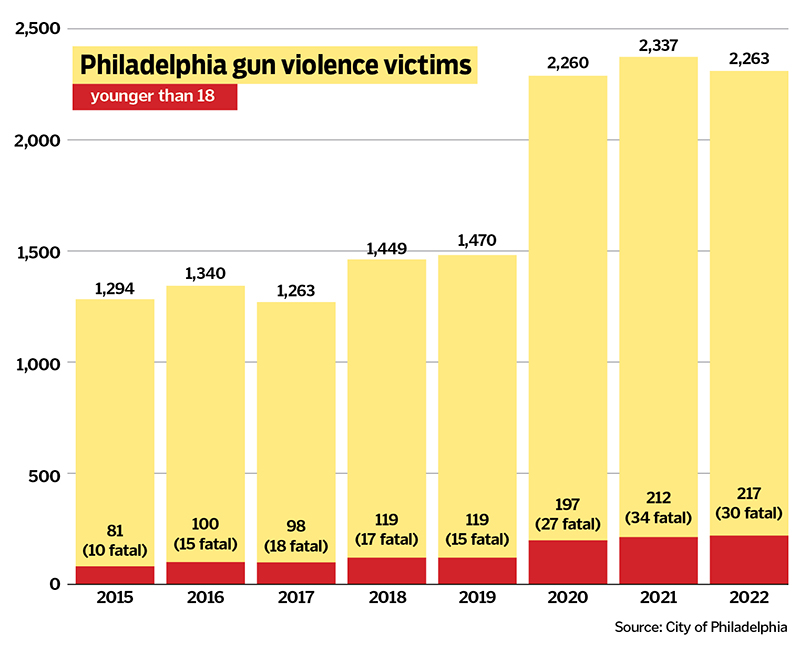
In addition to sharing the messages through various media outreach efforts, Trinity Health Mid-Atlantic facilities provided the campaign's talking points on gun safety to the clinicians who would be speaking with parents in pediatrician visits. Doctors, nurses and physician assistants are among those clinic staff who raise the topic with parents.
Woodward notes that clinicians are encouraged to speak realistically with their patients' parents about the topic, including acknowledging that conversations about gun safety can be awkward. He says the messages generally have been well received so far.
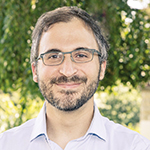
Adam Garber is executive director of CeaseFire PA, a nonprofit organization that educates about and advocates for gun safety. CeaseFire has partnered with Trinity Health Mid-Atlantic on gun violence prevention efforts in the past and now supports the region's newest campaign. Garber says a challenge in the past has been that many people see gun-related issues in black-and-white terms: people are for guns or against guns. People can put their emotional guard up when talking about guns because of this dichotomy. What is promising about the Doesn't Kill to Ask campaign, says Garber, is that it focuses not on the legality or morality of guns but on responsible gun ownership.
The physician, Vu, adds that having the awareness discussion with family members is an important aspect of the campaign. He notes that the most effective way to prevent gun violence involving children is to make safety and prevention the responsibility of the entire family. With everyone in a household ensuring that guns are safely secured, there's less risk of children getting ahold of those weapons, he says.
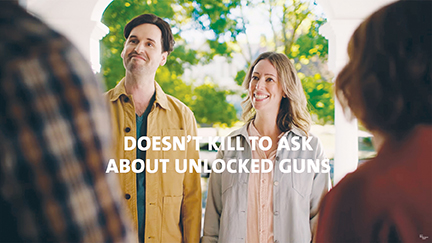
Toward a national narrative
Woodward notes that this campaign is the latest in a series of efforts to promote gun safety. In the past Trinity Health Mid-Atlantic has partnered with groups such as local Rotary Clubs to host clinicians
from Trinity Health hospitals to speak on the impact of gun violence. And Trinity Health hospitals also have joined with local police departments to provide community members with free gun locks and trigger locks.
Woodward says these efforts as well as the latest campaign could have far-reaching impacts, since gun violence is so prevalent in parts of Trinity Health Mid-Atlantic's service area. "Our community and our colleagues are really affected," Woodward says. "We hope that the more we talk about prevention, the more awareness there will be. This should become a national narrative.
"We hope this movement grows. We have a big tent, and all are welcome," he adds.
